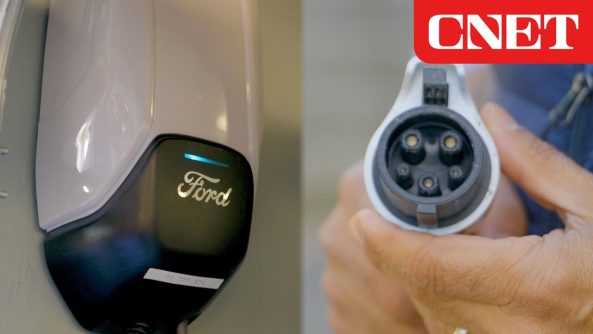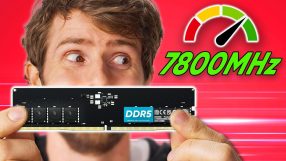Awesome Tips The Best Way to Charge Your New Electric Car at Your House
Understanding the difference between Level I and Level II is key to always having the range you need with the least expense and complication.
Understanding the difference between Level I and Level II is key to always having the range you need with the least expense and complication.
Follow @briancooley on Twitter:
Subscribe to CNET:
Like us on Facebook:
Follow us on Twitter:
Follow us on Instagram:
Follow us on TikTok:
Deals for Days. Big home savings are happening now.




Nice overview. Sounds like he says "FC" but he defines it as "service equipment" – actually it says FC on the chapter marker too. Wonder what "FC actually stands for?
You are only screwed if you live in the city, apartment or rent and the landlord says no. You forgot to mention that if you only have a 250 Amp service and need more you are in trouble and will cost you a ton more
This is truly an excellent overview using technically correct but understandable terminology. THANKS!
why can't they make a drivers seat that generates enough static electricity to power your car, all the driver needs to do is move about quickly ion his seat as he drives
Well done. Straightforward.
Probably the best video to explain level 1 and 2 charging at home.
OSCAR Material!
Is it free to charge at home ???
its funny theirs never had to be millions of videoes to explai you how to put gas in your car you guys are ediets to beleive government saving planet with ev garbage when they jump in their private jet or helicopters to go golfing 5 times a week to save planet
Hello, I live in a SEA country. Where I live, the average household outlet is 10 amps with 220 volts. Is it safe to use a level 2 EVSE with 16A or 20A capability? My car is a PHEV Prius plugin 2012 with 4.4kWh battery size.
Ty
Be sure to install a level 2 charger so your friends can save the most money when they visit and ask if they can plug in. Good video…. Thank You………………………
EVSE represents EV supply equipment 😊
no disscussion of 240 and 120 does this guy really know anything? ok I did learn a couple things. on with my search
Very good explanation of the types of chargers. Thank you.
Just for the record, some EVs, like smart phones, nowadays do not include so-called “granny lead” EVSEs, so bear that in mind. Then again, they’re not super-expensive, in the event it doesn’t come with the car.
I can only imagine how dumb I’d feel asking people if there’s a plug around here I can use.
Which equipment is best for apartment residents?
You say the terminals of the J-1772 corresponds to Black, White and Green. That would only give you 120 volts. You need Line 1 and Line 2 for 240 volts
Black => L1 (Line 1 – Connected to one end of Secondary).
Red => L2 (Line 2 – Connected to other end of Secondary).
White => N (Neutral Conductor or Grounded Current Carrying Conductor , Center Common of Secondary).
Green => Equipment Grounding Conductor.
<> L1 to N => 120 volts
<> L2 to N => 120 volts
<> L1 to L2 => 240 volts.
<> The Neutral is connected to the center tap of the secondary windings of the Utility Transformer. Either Line to Neutral gives you 120 volts. From end to end of Secondary gives you 240 volts, the two 120 volts add to give 240 volts.
<> At the first electrical panel the Neutral Bus Bar, Equipment Grounding Bus Bar and the Ground Rod System are all bonded together (Connected together).
<> At the first electrical panel the only difference between Neutral and Equipment Grounding Conductor is the Neutral (Grounded Conductor) Conducts electrical current, the Equipment Grounding Conductor is there just for saftey. There is not electrical current flowing through it unless there is an electrical fault.
<> The second or any other electrical panels have the Neutral and the Equipment Grounding Conductor (green or bare) seperated. They do not want current flowing through both the Neutral and Equipment Grounding Conductor back to the first panel, remember the Equipment Grounding Conductor does not have current flowing through it (for saftey).
<> With 3 Phase Power L1-L2-L3 (208 volt) the Voltage and Current of one Line are 120 degrees apart from another Line. The graph of each legs sinewave is 120 degrees apart from another. The most used winding is called a "Y", where there are 3 legs and a center common. Any Line to Center Neutral is 120 volts.
L1 to L2 => 208 volts, L2 to L3 => 208 volts, L3 to L1 => 208 volts
Since any of the Lines to Common => 120 volts. If you drew out the "Y" with the 3 legs of 120 units (volts) and meeting at the center 120 degrees apart. Then measured or calculate end of one leg to end of another leg you would get 208 units.
Brian Cooley is fantastic. Need to see more of him! I hope he's wearing sunscreen for all these videos!
Prospective EV buyer here. I’d fall into the 30ish miles a day category. Would using a level 1 charger every night cause unnecessary strain on the battery leading to faster degradation? I rent currently rent and won’t be able to add a level 2. Thanks!
Had a quote for the line install in my garage. Not $1500, try $4K. My issue is a bit unique in the fact that I have no more room on any panels in my home or on the custom panel on the side of my house, so I'd either have to add a sub panel or replace a panel with a larger one. SIGH!!!!! Great explanation video btw.
Give this guy his own channel
Great video. I'm one of those folks who only needs the level 1 at home so far. That said, many car companies will install a level 2 for you with purchase of an EV for free or a huge discount.
What does the box actually do? Why did the EV car salesman say that all we needed was a 240V receptacle?
T.T what about apartments?
Finally, someone PERFECTLY explains this. Fantastic video and host.
Why didn’t he touch on the extra cost to home electric bill?